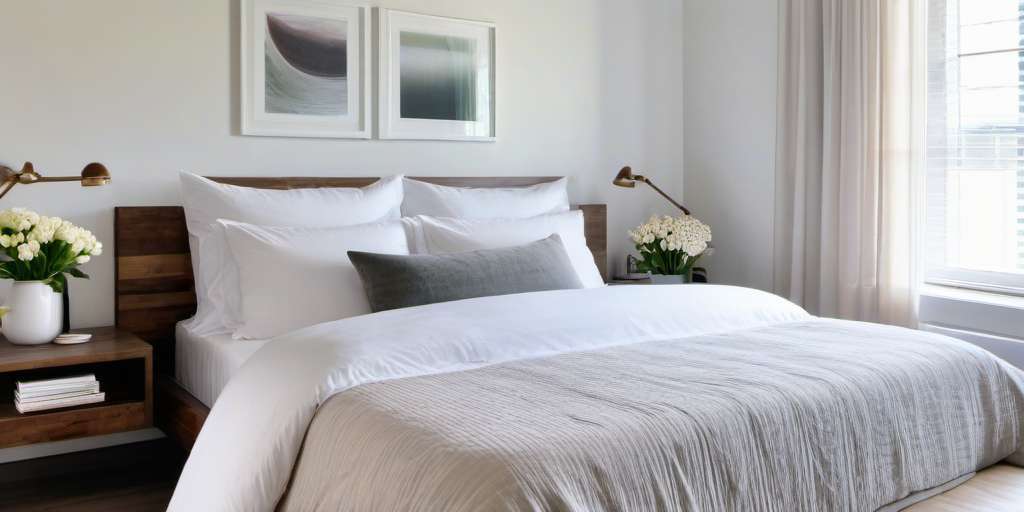Housekeeping: Essential Tips and Services for a Cleaner, Healthier Home
Housekeeping: Essential Tips and Services for a Cleaner, Healthier Home
Housekeeping involves maintaining a clean, organized, and functional living space. It encompasses a variety of tasks such as cleaning, organizing, and maintaining both indoor and outdoor areas. Different housekeeping services cater to homes and commercial establishments. Effective housekeeping enhances health, boosts psychological well-being, and increases property value.

Importance of Housekeeping
Housekeeping is vital for maintaining a pleasant and healthy living or working environment. It plays a crucial role in ensuring spaces are clean, organized, and safe.
Benefits of a Clean Environment
A clean environment provides numerous advantages, significantly affecting health and psychological wellbeing.
Health Benefits
Regular housekeeping activities contribute to better health outcomes. A clean home reduces the likelihood of respiratory issues, such as allergies and asthma, by minimizing dust, mold, and other allergens. Effective housekeeping also prevents the build-up of bacteria and viruses, lowering the risk of infections.
Maintaining a clean kitchen and proper food storage practices help prevent foodborne illnesses. Regularly disinfecting surfaces and ensuring that waste is appropriately disposed of further promotes a healthy home environment.
Psychological Benefits
A well-maintained living space positively impacts mental health. An organized environment can reduce stress and anxiety, creating a more relaxing atmosphere. It also boosts productivity and focus, as clutter-free spaces enhance concentration and efficiency in daily tasks.
Furthermore, clean and orderly surroundings contribute to better sleep quality. Knowing that one’s home is tidy and free from messes can provide a sense of accomplishment, boosting overall emotional wellbeing.
Enhancing Property Value
Effective housekeeping practices can increase the value and longevity of a property. Regular cleaning and maintenance prevent deterioration and extend the life of household fixtures and furnishings.
Proper care of carpets, flooring, and furniture ensures these items remain in good condition, potentially saving costs associated with frequent replacements. Well-maintained outdoor areas, such as gardens and patios, can also enhance curb appeal, making properties more attractive to potential buyers.
Preventive measures, like promptly addressing minor repairs and upkeep, can avoid more significant issues down the line. This proactive approach not only preserves the aesthetic appeal of a property but also safeguards its structural integrity and functionality.
Types of Housekeeping Services
Housekeeping services can be broadly categorized into domestic and commercial services, each designed to meet specific cleaning and maintenance needs.
Domestic Housekeeping
Domestic housekeeping services focus on maintaining homes and living spaces. These tasks can either be performed by homeowners themselves or outsourced to professional cleaning services.
Daily Cleaning Tasks
Daily cleaning tasks typically involve:
- Dusting surfaces
- Vacuuming carpets and rugs
- Cleaning and sanitizing bathrooms
- Cleaning kitchen counters and appliances
Folding and Storing Clothes
Proper folding and storing of clothes help in maintaining an organized wardrobe. This includes:
- Folding laundry neatly
- Separating seasonal clothing
- Using storage boxes for less frequently worn items
- Maintaining an efficient closet organization system
Outdoor Areas Maintenance
Outdoor upkeep is crucial for the aesthetics and functionality of the property’s exterior. Essential tasks include:
- Mowing the lawn
- Trimming hedges and shrubs
- Cleaning patios and outdoor furniture
- Raking leaves and removing debris
Commercial Housekeeping Services
Commercial housekeeping services are tailored to meet the needs of businesses and institutions, ensuring clean, safe, and appealing environments for employees and patrons.
Linen and Laundry Services
Linen and laundry services are essential for maintaining hygiene standards in commercial establishments. These services include:
- Regular washing of bed linens and towels
- Ironing and folding services
- Ensuring a steady supply of clean linen
- Managing linen inventory
Disinfection Protocols
Disinfection protocols are vital for reducing the spread of germs and maintaining a sanitary environment. These protocols encompass:
- Using EPA-approved disinfectants
- Regularly disinfecting high-touch surfaces
- Implementing thorough cleaning procedures for restrooms
- Training staff on proper disinfection techniques
Waste Disposal
Effective waste disposal is critical for cleanliness and health. Key aspects include:
- Separate collection of recyclable and non-recyclable waste
- Regular pickup schedules to prevent accumulation
- Proper disposal of hazardous materials
- Maintaining cleanliness around waste disposal areas
Housekeeping vs. Maid Services
While housekeeping and maid services might seem similar, they offer different scopes and frequencies of service.
Understanding the Differences
Scope of Services
Housekeeping typically involves a comprehensive approach to maintaining the entire home or establishment. This includes daily cleaning, organizing, laundry, and general upkeep. It often encompasses tasks like vacuuming, dusting, dishwashing, and taking out the trash. Some housekeepers may also cook meals and manage household supplies.
Maid services, on the other hand, are usually more focused on routine cleaning tasks rather than broader maintenance. Their primary responsibilities include sweeping, mopping, surface cleaning, bathroom sanitization, and sometimes basic tidying.
Frequency of Service
Housekeeping services can be scheduled daily, weekly, bi-weekly, or based on the specific needs of the household or institution. They often form a regular part of the lifestyle, ensuring continuous maintenance and cleanliness.
Maid services are generally hired on a less frequent, more ad-hoc basis. Many people opt for maid services for occasional deep cleans, special occasions, or when they need extra help due to changes in routine or lifestyle.
Choosing the Right Service for Your Needs
Budget Considerations
When selecting between housekeeping and maid services, budget plays a crucial role. Housekeeping services, due to their comprehensive nature and frequency, tend to be more expensive. Regular upkeep requires a sustained commitment, which can add up over time. Evaluating the cost against the benefits of a consistently maintained environment is essential.
Maid services, being more periodic and focused on specific tasks, are typically more affordable per visit. This option suits those looking for cost-effective, occasional deep cleaning without the need for regular household management.
Service Quality
The quality of service can vary significantly between housekeeping and maid services. Housekeepers often build a relationship with the household, leading to a more personalized, thorough service. They become familiar with the preferences and specific needs of the residents, ensuring consistently high standards of cleanliness and organization.
Maid services may not offer the same level of personalized care due to their more transactional nature. However, many maid service providers maintain professional standards and ensure thorough cleaning for each appointment. Checking reviews and testimonials can help gauge the quality of service provided by different companies or individuals.
Essential Housekeeping Tools and Products
Maintaining a clean and organized living space requires the right tools and products. These tools aid in efficient cleaning and proper organization of household items.
Cleaning Agents
Effective cleaning starts with the right cleaning agents. These products help to remove dirt, germs, and stains from various surfaces.
Disinfectants
Disinfectants are crucial for eliminating bacteria and viruses. They are commonly used in bathrooms, kitchens, and other high-touch areas to ensure a germ-free environment.
Multi-Surface Cleaners
Multi-surface cleaners are versatile products that can be used on a variety of surfaces, such as countertops, floors, and appliances. These cleaners simplify the cleaning process by reducing the need for multiple specialized products.
Cleaning Equipment
In addition to cleaning agents, proper equipment is essential for maintaining cleanliness and hygiene in a household. These tools make cleaning tasks more efficient and less physically demanding.
Vacuum Cleaners
Vacuum cleaners are indispensable for removing dust, dirt, and debris from carpets, rugs, and hard floors. Modern models come with various attachments to clean upholstery, drapes, and even car interiors.
Mops and Brooms
Mops and brooms are basic yet vital tools for sweeping and mopping floors. They come in various types, such as microfiber mops for wet cleaning and corn brooms for sweeping indoor and outdoor spaces.
Storage and Organization
Proper storage and organization solutions are key to keeping a household clutter-free and efficient. These tools help in organizing items neatly and making better use of available space.
Shelving Units
Shelving units provide additional storage space in kitchens, garages, basements, and closets. They help in organizing items like books, kitchenware, and tools, keeping them easily accessible and neatly arranged.
Storage Bins
Storage bins are versatile containers that can be used to store seasonal clothing, toys, and other household items. They come in various sizes and materials, making it easy to find the perfect fit for different storage needs.
Best Practices in Housekeeping
Implementing best practices in housekeeping ensures a clean, safe, and efficient living environment. Effective housekeeping requires proper scheduling, time management, and attention to safety and health.
Scheduling and Time Management
Creating a Cleaning Schedule
A well-structured cleaning schedule ensures that all tasks are completed regularly and nothing is overlooked. Divide tasks into daily, weekly, and monthly activities. For example, daily tasks might include making the bed, doing the dishes, and wiping down surfaces. Weekly tasks could involve vacuuming, mopping, and cleaning bathrooms. Monthly tasks might include deep-cleaning carpets, washing windows, and organizing closets.
Prioritizing Tasks
Effective prioritization helps manage time and effort efficiently. Identify high-traffic areas that require frequent cleaning, such as the kitchen and bathrooms. Focus on tasks impacting health and safety first. For example, prioritize cleaning and disinfecting over less critical activities like organizing a bookcase. Use checklists to keep track of tasks and ensure higher-priority items are consistently addressed.
Safety and Health Considerations
Proper Use of Chemicals
When using cleaning chemicals, it’s crucial to follow safety guidelines to avoid health hazards. Always read and follow label instructions to ensure proper usage and dilution. Wear appropriate protective gear, such as gloves and masks, to minimize exposure. Store chemicals in a secure location away from children and pets. Ventilate areas well during use to prevent inhalation of fumes.
Ergonomic Cleaning Practices
Adopting ergonomic practices can reduce physical strain and the risk of injury. Use tools that minimize bending and reaching, such as extension dusters and long-handled mops. Ensure vacuum cleaners and other equipment are lightweight and easy to maneuver. Take regular breaks to avoid fatigue and use proper lifting techniques when handling heavy items to prevent back injuries.

 Previous Post
Previous Post Next Post
Next Post